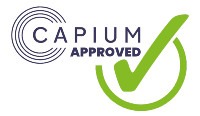Inheritance tax and capital gains tax (CGT) are distinctly different taxes, but while not everyone thinks about them together, there are occasions where they can overlap.
Inheritance tax is payable on the value of the estate you leave behind when you die, so long as the value exceeds certain thresholds. Meanwhile, when you sell or dispose of a chargeable asset that’s increased in value, you’ll usually need to pay CGT on the profit.
You can reduce your liabilities with some careful planning, but it can get complicated, especially when these taxes overlap.
When’s the best time to gift assets?
In some cases, it may be better to gift assets while you’re still alive, even though you might have to pay CGT on them. On the other hand, it may make more sense to keep hold of certain assets until you pass away. There’s no one-size-fits all solution, and hiring an accountant can help you determine the best tax strategy for your unique situation.
Let’s take a look at what you’ll need to consider.
Transferring assets
Assets are resources or personal possessions that you can sell or convert into cash. A list of chargeable assets for CGT can be found on the Government website, but you’ll usually be charged CGT on assets worth over £6,000.
However, you won’t be charged CGT on assets transferred to your spouse or civil partner, and if you meet the criteria for private residence relief, you may not be charged CGT when you sell or dispose of your home.
There is also no inheritance tax payable if you pass on a home to your spouse when you die, while leaving the property to anyone else may increase your liability. However, property residence relief may be available in this instance.
Additionally, if you die within seven years of transferring an asset as a gift, it may become subject to inheritance tax anyway. The exact tax rate is determined on a sliding scale according to the seven years rule.
Because of this, it’s important to get the timing of any gifts right to reduce your tax liability as much as possible.
Business relief
If you have business assets, it’s possible that they won’t form part of your estate – but the rules are complicated. While business relief for inheritance tax is usually available at 100% on a business or shares in an unlisted company, there are different relief rates for other assets.
Meanwhile, if you give someone your business while you’re still alive, your estate can benefit from business relief – so long as the recipient keeps the assets or property until your death.
If you go down this route, there are also a range of different reliefs available that can reduce your CGT liability or allow you to defer payment.
However, if you do gift your business, you’ll have to keep in mind that the recipient may end up facing their own CGT bill in the future.
Agricultural relief
If you run a farming business, it may be more cost effective to leave land to someone in your will rather than in your lifetime. This is because certain agricultural assets may qualify for 100% inheritance tax relief.
Agriculture relief for inheritance tax includes many types of land, as well as farm buildings and some agricultural shares and securities. Equipment, livestock and a few other assets are excluded.
But be careful – since the relief is so generous, HMRC is very thorough in making sure the qualifying tests are met. In most cases, you will need to prove that the land is being actively farmed.
The perfect tax plan
You usually won’t have to pay both inheritance tax and CGT on the same assets – but you need to get the timing right. It’s a complicated area, and successfully navigating all the exemptions, reliefs and rules requires professional expertise and a solid tax planning strategy.
Our accountants are always happy to talk you through your options, so get in touch today to find out how we can help reduce your tax liabilities.


